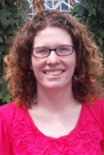Eye on Extension: How youth benefit from 4-H

VALLEY — Besides fair, winter is one of my busiest seasons as a 4-H agent. In the past few weeks alone, I’ve taken youth to an officer training and two state leadership camps, run a robotics challenge, provided a leader training, held teen leadership council meetings, and hosted a Cloverbuds session on leathercraft. I’ve also written scholarship recommendation letters for two youth.
Though it can be easy to get bogged down with all this work, I am instead really energized by it. That’s because it allows me to see the positive impacts of the 4-H program firsthand.
4-H is a youth development program, run by Colorado State University Extension, which focuses on teaching kids life skills, in partnership with caring adults. The program has been changing the lives of youth, with structured learning, encouragement and adult mentoring, for more than 100 years.
4-H members participate in community clubs where they learn leadership and organizational skills, work on public speaking, and organize community service projects activities. Additionally, 4-Hers enroll in various projects, such as market swine, woodworking, dogs, horse, and cake decorating. In these projects, youth work independently and with adult leaders to learn about a subject and produce a fair exhibit to show off their learning. Along the way, kids have fun, and develop positive relationships with other youth and adults.
The 4-H model works! An eight-year longitudinal study on positive youth development by Tufts University, completed in 2008, found that youth who participate in 4-H excel in several areas when compared to their non-4-H peers.
One area 4-Hers excel is healthy living. “Health” is one of the four H’s referenced in the program name (along with head, heart and hands). Because of the positive relationships they build in the program, 4-H members have the self-esteem and skills to make positive life choices. As a result, members are two times more likely to exercise and be physically active. They are also less likely than their peers to engage in risky behaviors.
Another important impact area is community and civic engagement. The Tufts study found that 4-Hers in middle and high school are nearly four times more likely to make contributions to their communities, through things like community service projects, than their non-4-H peers. Additionally, it found that these kids were also two times more likely to be civically active.
4-Hers also succeed in the classroom, where they are more likely to report better grades, and two times more likely to plan to go to college than their peers. Members are also more likely to pursue careers in science, engineering and technology, and participate in other activities related to these in-demand fields. This is especially true locally for youth who have participated in our SLV 4-H Robotics program and STEM afterschool outreach.
Besides the areas highlighted in the Tufts study, many 4-H youth improve their leadership skills by taking advantage of various 4-H opportunities. One way to do this is by serving as an officer in their local club, or on their county or regional leadership council. Another way is by attending life-skill building camps, like Youth Fest and the Leadership Development Camp. In my more than five years here in the Valley, it’s been so rewarding to watch young people become more confident and experienced leaders through this program.
4-H is made possible by financial support from the federal government, Colorado State University, and local county government. It also wouldn’t exist without the support of hundreds of adult volunteers who serve as club and project leaders. These wonderful folks are the heart of our program. While I’ve been working on Valley-wide and state stuff these past few weeks, they’ve been providing support and learning for their club members.
If you want your kid to reap the benefits of the 4-H youth development program, consider joining! New members can enroll in our program through March 31. Learn more on our website at http://sanluisvalley.colostate.edu or give us a call at 719-852-7381.
Amy Henschen is the 4-H Youth Development Agent for Colorado State University Extension. Extension programs are available to all without discrimination.



